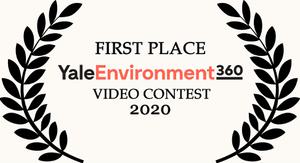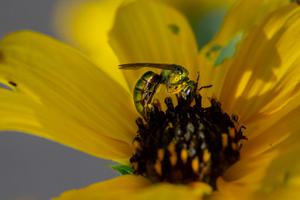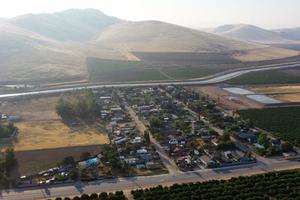Much of the recent publicity about threats to the world’s bee populations has focused on problems, including colony collapse disorder, plaguing the large, domesticated honeybee colonies that are trucked from region to region to pollinate everything from almonds to fruit trees. But another group of bees — native bees — faces a different range of threats, most linked to habitat loss.
Worldwide, roughly 20,000 native bee species have evolved over millions of years to thrive in countless habitats, where they have specialized in pollinating specific flowers and plants — in some cases just a single plant. But as filmmaker Brooke McDonough says in her video, “Buzz Kill” — winner of the 2020 Yale Environment 360 Video Contest — industrialized agriculture and the widespread loss of habitat pose a serious challenge to native bees. Indeed, as McDonough shows in her film, large numbers of commercial honeybees set loose on a landscape can outcompete native bees for pollen and nectar.
“Human activity and development zeroes out bee habitat and bees,” Sam Droege, a wildlife biologist at the U.S. Geological Survey, says in the film. Lindsay Barranco, a University of Maryland graduate student in entomology, notes that people can help counteract that trend by growing flowering and other plants that provide food and habitat for more specialized native bees — especially as more homogenized honeybee colonies face growing threats. “We have all these wonderful things to eat and we wouldn’t have that without them,” says Barranco. “We’d be very unhappy people without bees.”
About the Filmmaker: Brooke McDonough is a Washington, D.C.-based storyteller and a member of the North American Nature Photography Association (NANPA) and Women Photojournalists of Washington (WPOW). She uses text, photography, and video to share conservation and natural history stories. She is a recipient of National Geographic’s Second Assistant grant where she assisted National Geographic photographer David Liittschwager.
About the Contest: The Yale Environment 360 Video Contest honors the year’s best environmental films, with the aim of recognizing work that has not previously been widely seen. Entries for 2020 were received from six continents, with a prize of $2,000 going to the first-place winner.



